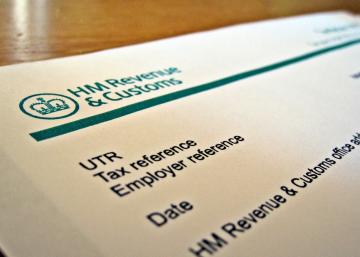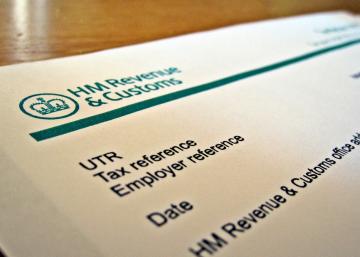
If you no longer live in the UK, you may still have to file a tax return with the HMRC, even if you are a non-resident.
The tax rules for UK residents and non-residents are very different, and one of your first requirements is to determine your tax residency status in the UK. It is important to remember that even if you are officially a resident in another country, you may still be a tax resident in the UK.
Establishing your UK tax residence status
The HMRC use their Statutory Residence Test to determine whether you are a tax resident which incorporates a number of factors.
One of the most common, and often very expensive, mistakes non-residents make is reading about it on the internet, and making their own decision about their residence status. Establishing your tax residence status can be complicated, and you should always seek advice from a qualified accountant. Getting it wrong can lead to penalties and unexpected tax bills.
What is a Self Assessment tax return?
A Self Assessment tax return is a declaration of the income you have received during a tax year. For example the 2017/18 self assessment tax return will cover the tax year ended 5 April 2018. Note the tax year begins on 6 April and ends on 5 April.
The tax return will enable the HMRC to calculate how much tax you owe in the UK, or any rebates which are owed to you, from income you received during the tax year under review.
Under normal circumstances, if the HMRC deems that you are required to complete a Self Assessment tax return, they will send you a notification once the tax year has ended and will be due to be submitted by October 31st (by paper) that year or January 31st the following year if submitted online.
Any tax payments will be due by 31st January. You may also need to make a payment on account on 31 July.
Example: You are requested to submit a tax return for the tax year 2017/18. You receive a notification in the post in May 2018. Your tax return will be due by October 31st 2018 if you intend to complete your tax return by post. If you are filing your tax return online, it must be submitted by 31st January 2019. All payments must also be received by January 31st 2019.
Non-resident tax return requirements: do non-residents have to file a tax return?
Just because you no longer live in the UK, you may still be required to complete a tax return.
If you are deemed to be a non-UK resident, it may still be necessary to complete a tax return if you have UK source income even if you owe no tax.
Typical scenarios that may require a tax return for non residents to be completed include:
- If you are a director of a UK company
- If you receive profits from a UK partnership
- If you earn an income in the UK through self-employment
- If you do not live in the UK, but you do some or all of your work in the UK
- If you are in receipt of UK rental income
- If you make capital gains from the sale or disposal of assets in the UK
Income received from investments (eg. interest or dividends) typically do not have to be declared if they are your UK only income and the total is less than £11,000.
If you work in the UK, unless tax has already been deducted by your employer through pay as your earn scheme, any work you do will be taxable and you will therefore be required to complete a tax return.
It is also important to remember that you may have to be taxed on your income in your country of residence, if it is not in the UK. The UK does, however, have doubt taxation treaties with some countries which will mean that tax is only payable in one country.
Non-resident tax return penalties
If you file or pay your Self Assessment after the 31st January you will incur a penalty. The penalty regime currently in place is as follows:
- 1 day late: Initial penalty of £100
- 3 Months late: Automatic penalty of £10 per day up to a maximum of £900
- 6 months late: A further penalty of the greater of £300 or 5% of the tax that would have been due and payable if the Return had been submitted on time.
- 12 months late: Another penalty of £300 or 5% of the tax that would have been due and payable if the Return had been submitted on time.
In addition to the above you will be required to pay tax geared penalties and interest on any outstanding tax payments.
I’m a non-resident, do I have to complete tax return?
There is no one single hard and fast rule. Understanding whether you should complete a Self Assessment tax return is incredibly important and you should never simply assume that you do or don’t have to file a tax return.
Please read our article How to tell if you have to submit a UK tax return to see the six criteria that will determine whether you should be submitting a tax return.
I’m not British, but I live in the UK – do I need to file a tax return?
If you are a foreign national living in the UK, (i.e. not domiciled in the UK, but a UK resident), have an income in the UK and have foreign income and/or gains then you will pay tax on:
- your UK income
- your capital gains on assets in the UK
- your foreign income and capital gains if you bring it back to the UK.
A number of key factors will determine whether you should complete a tax return, and you should always seek professional advice to avoid any penalties or double taxation.

